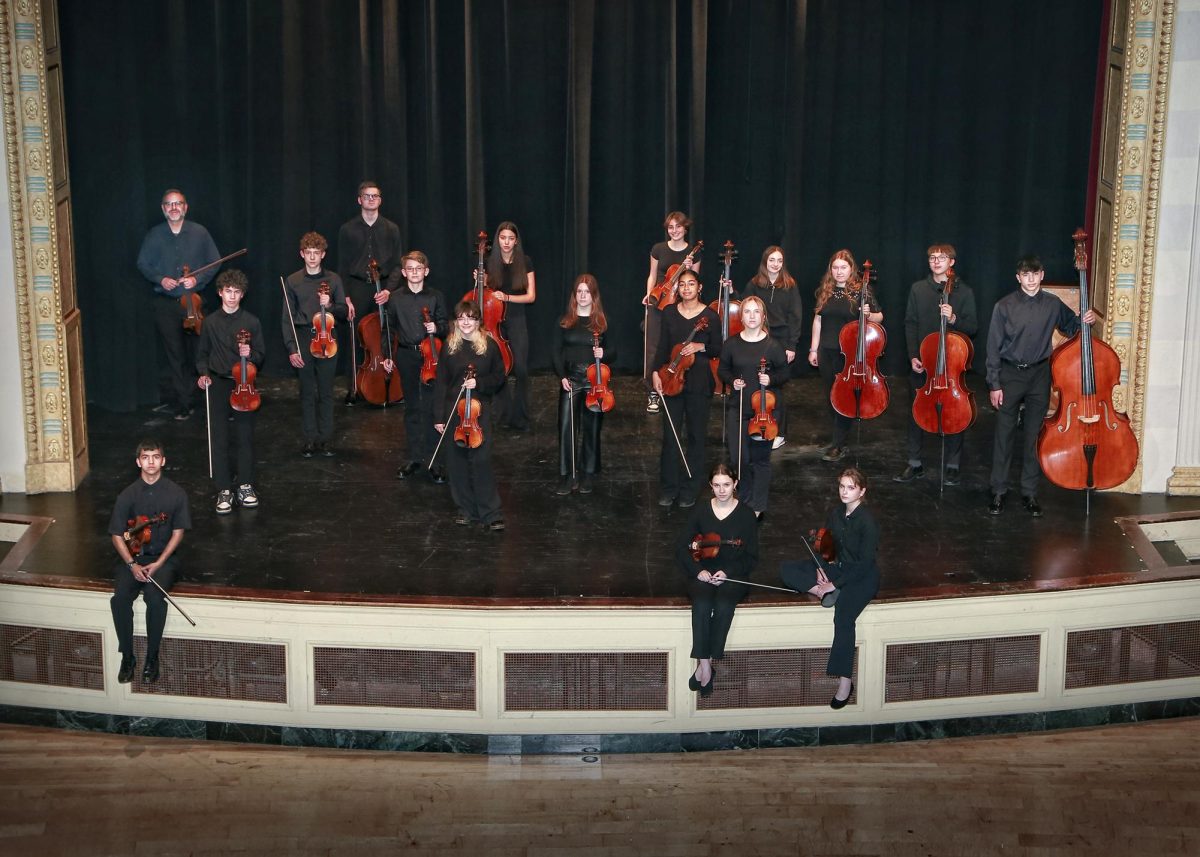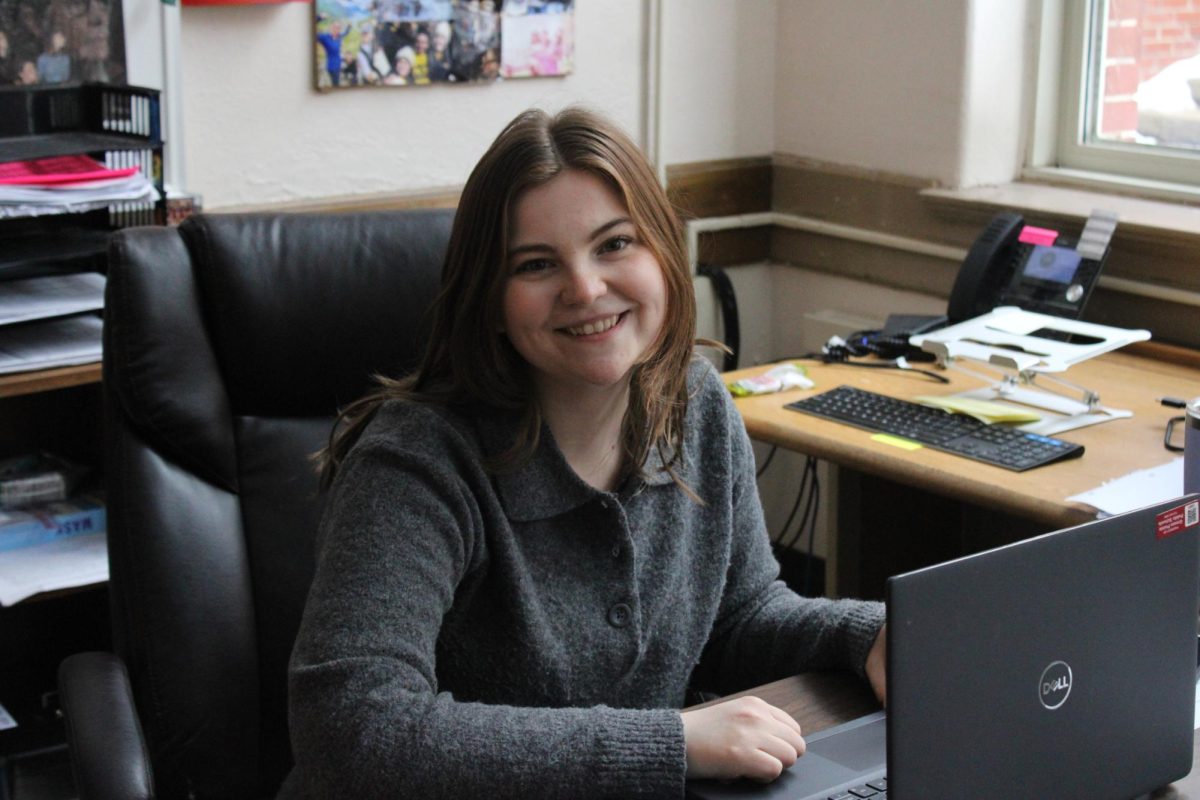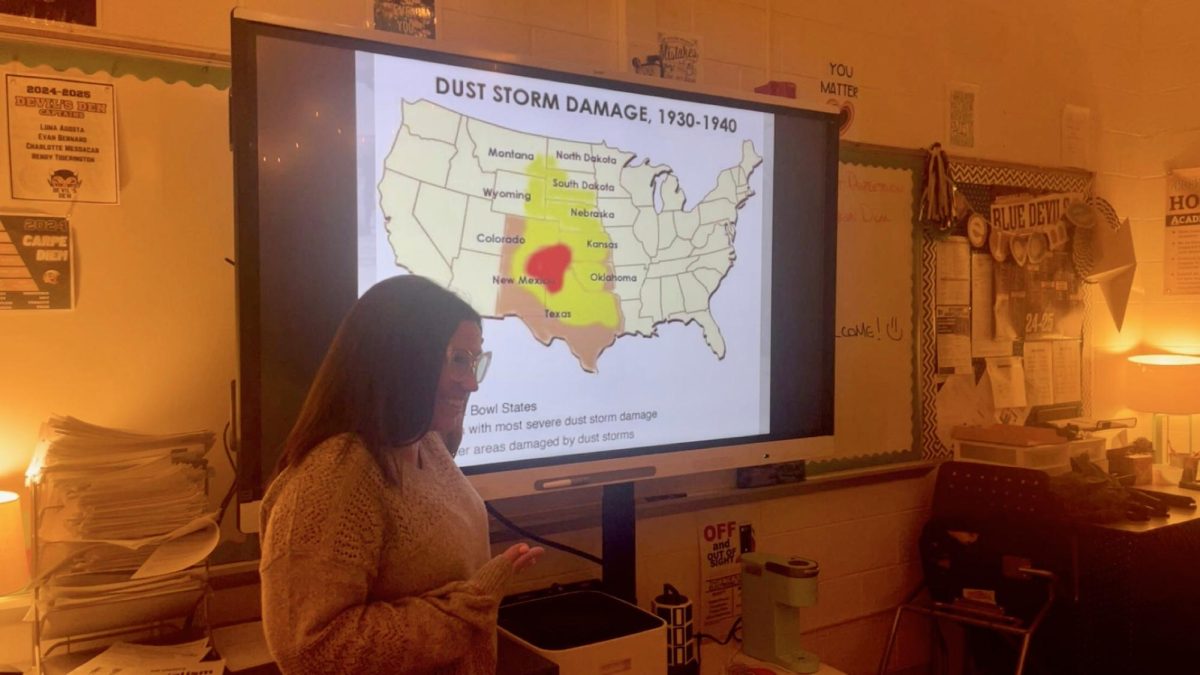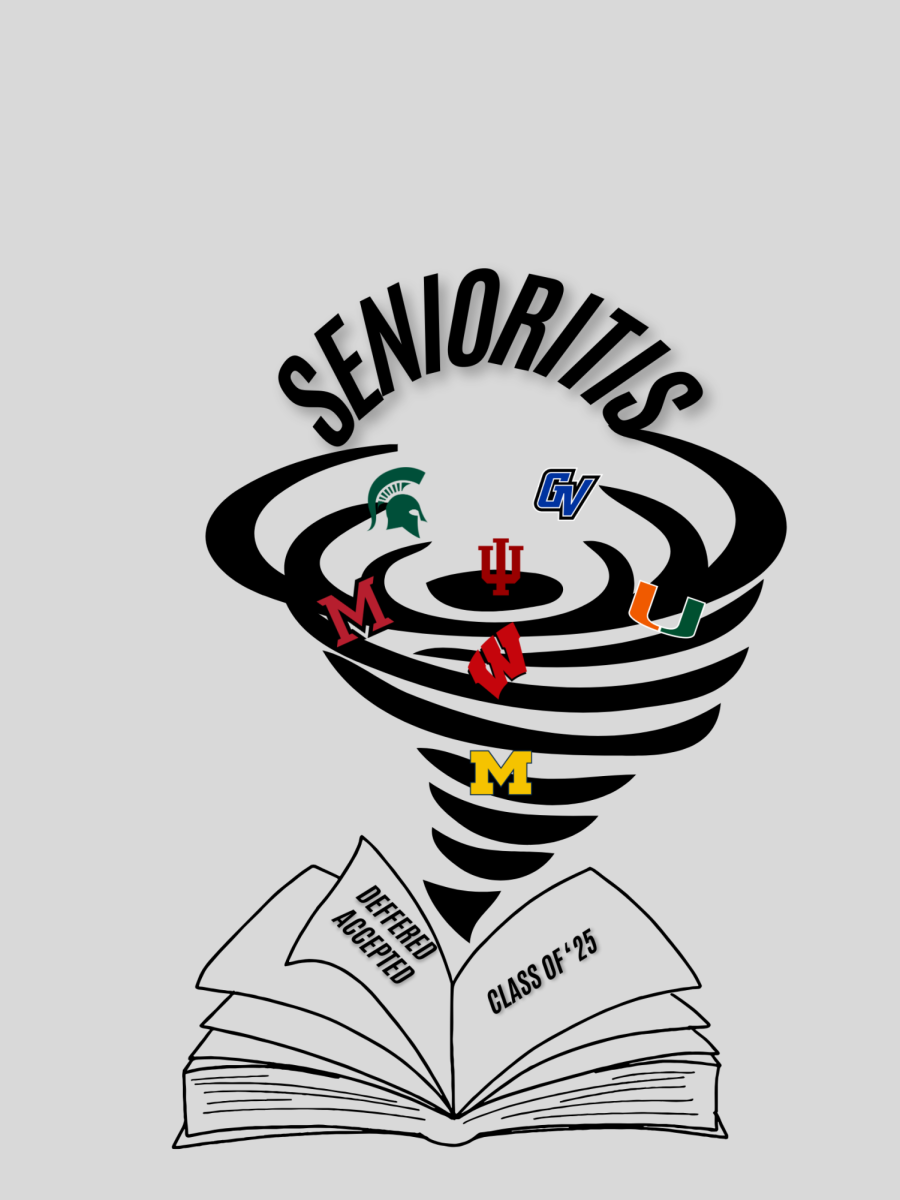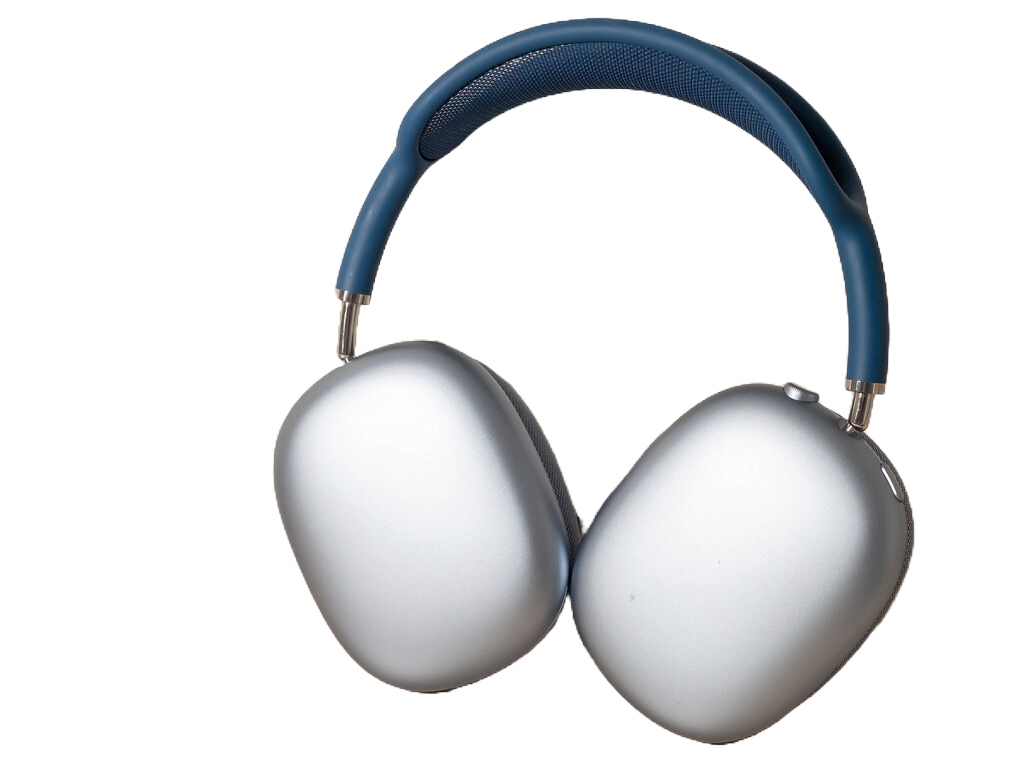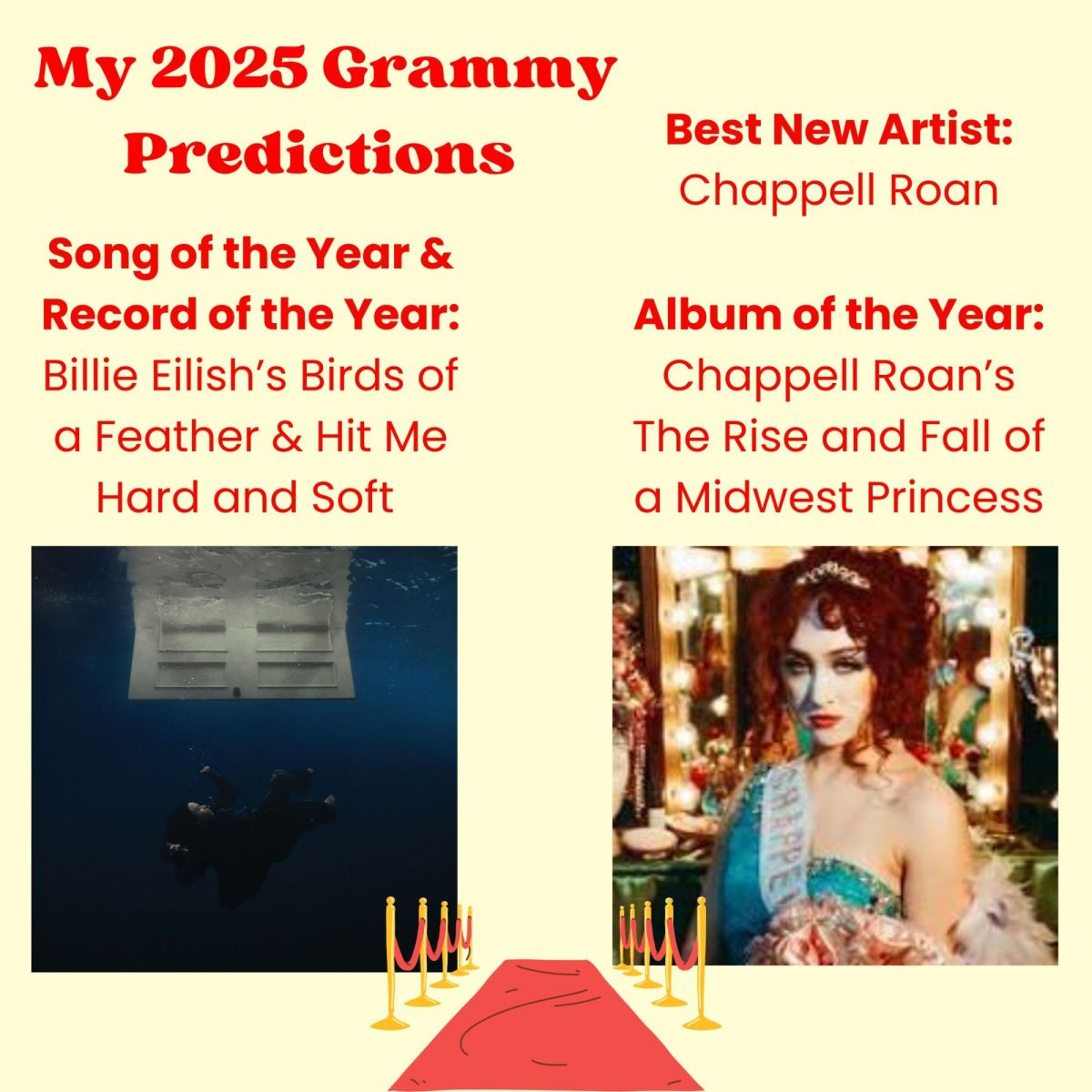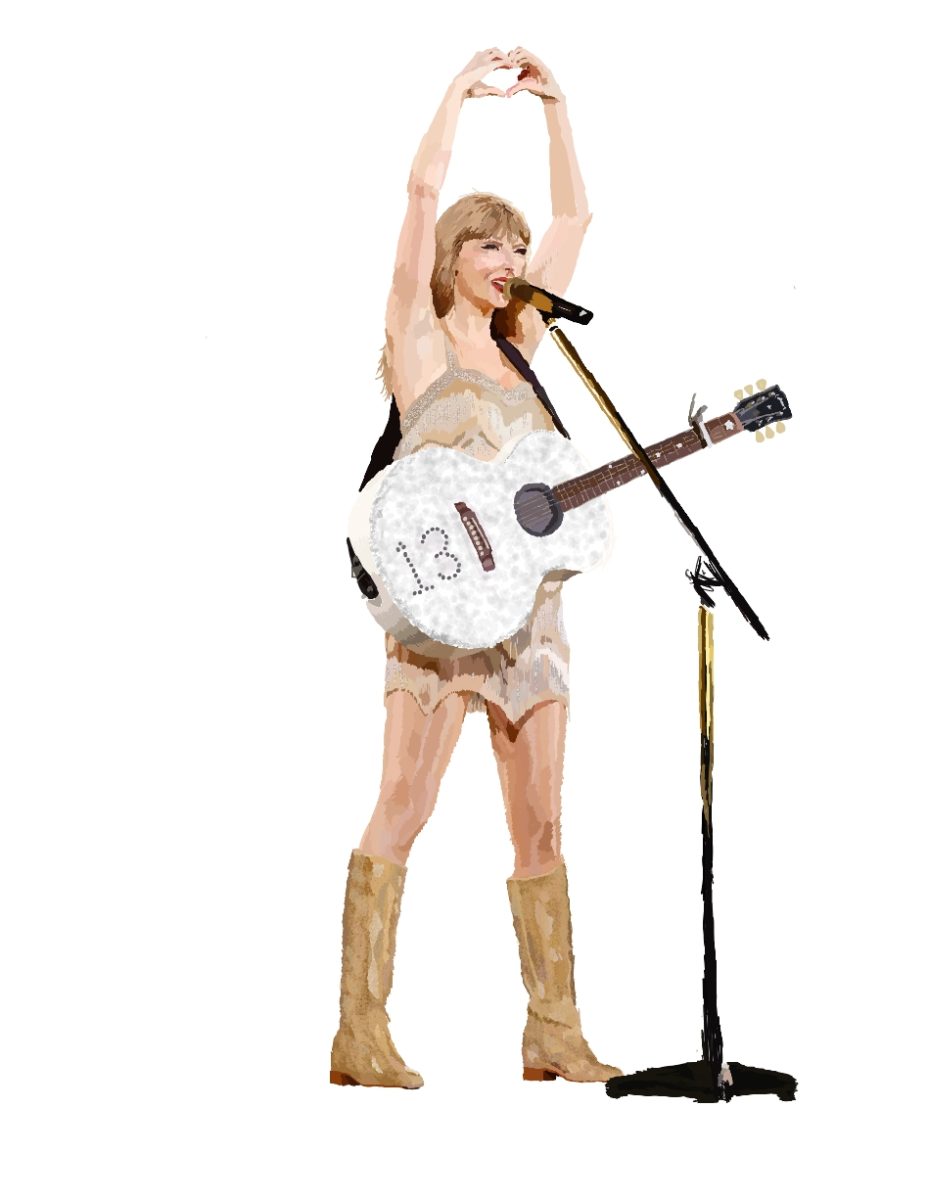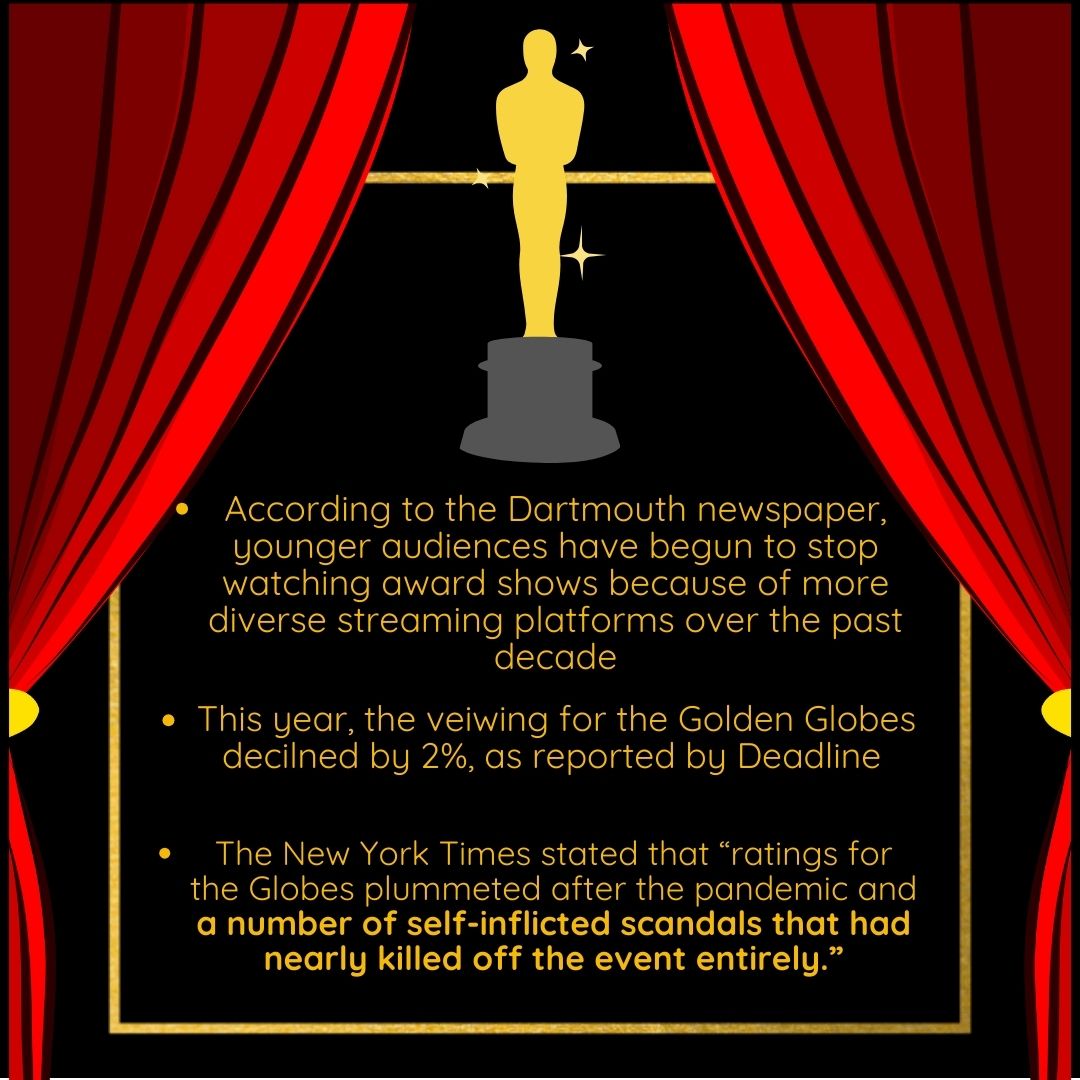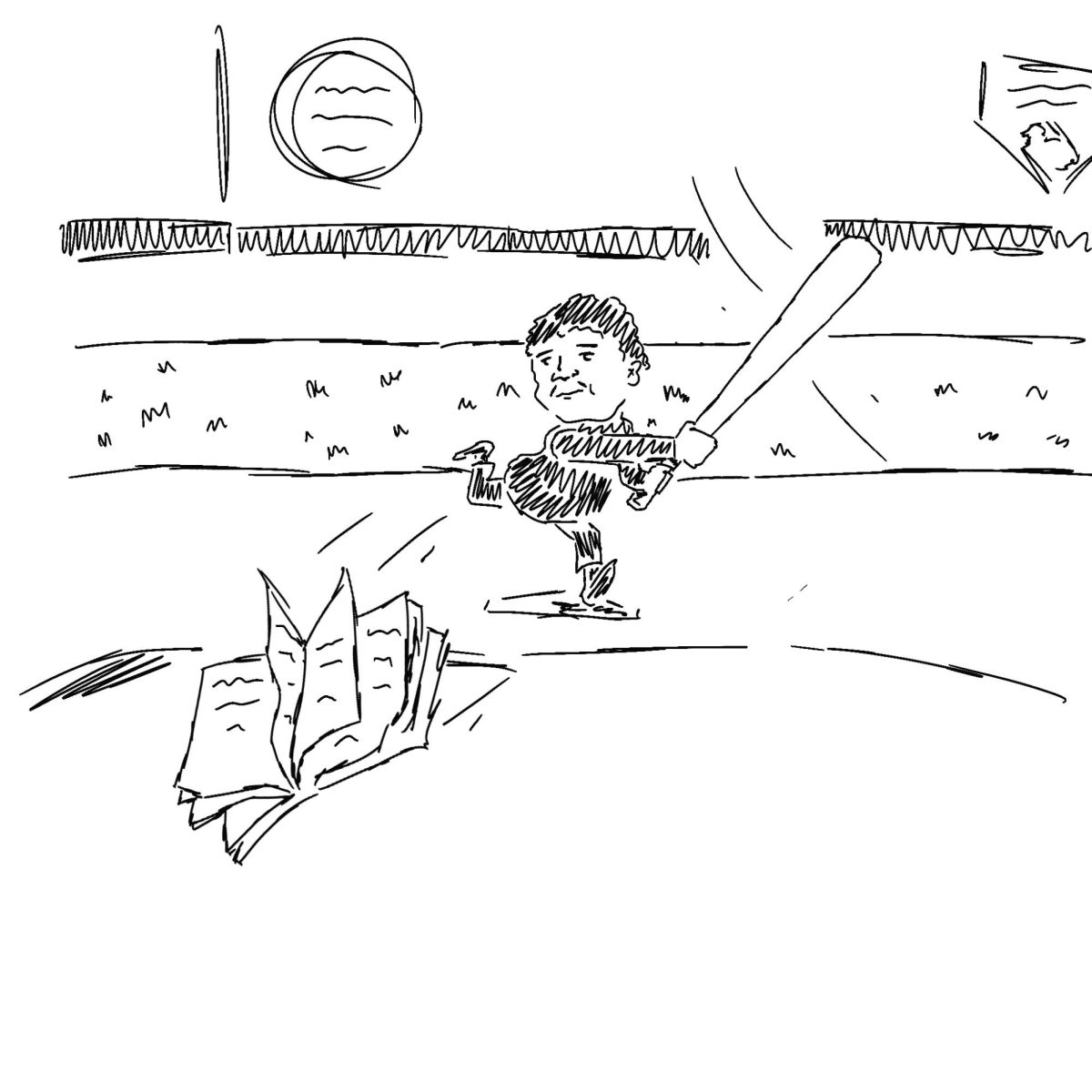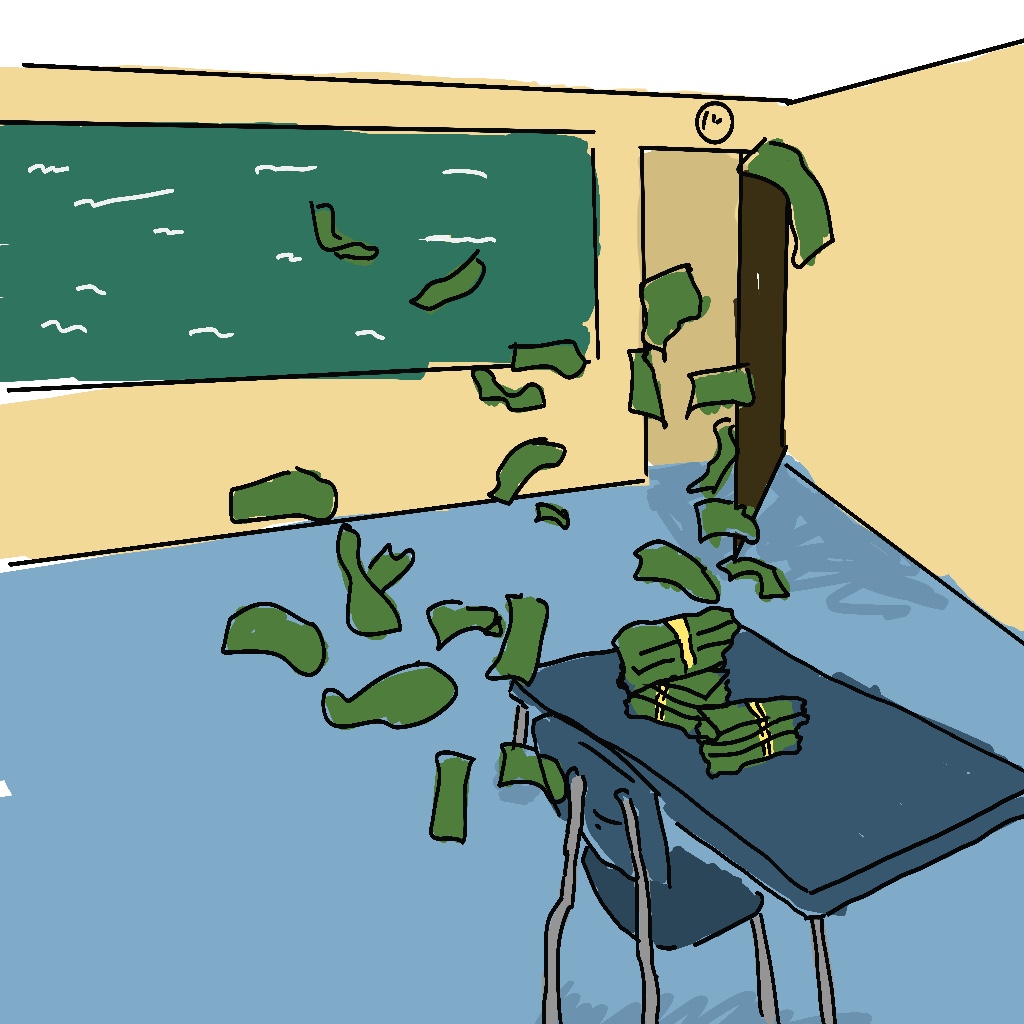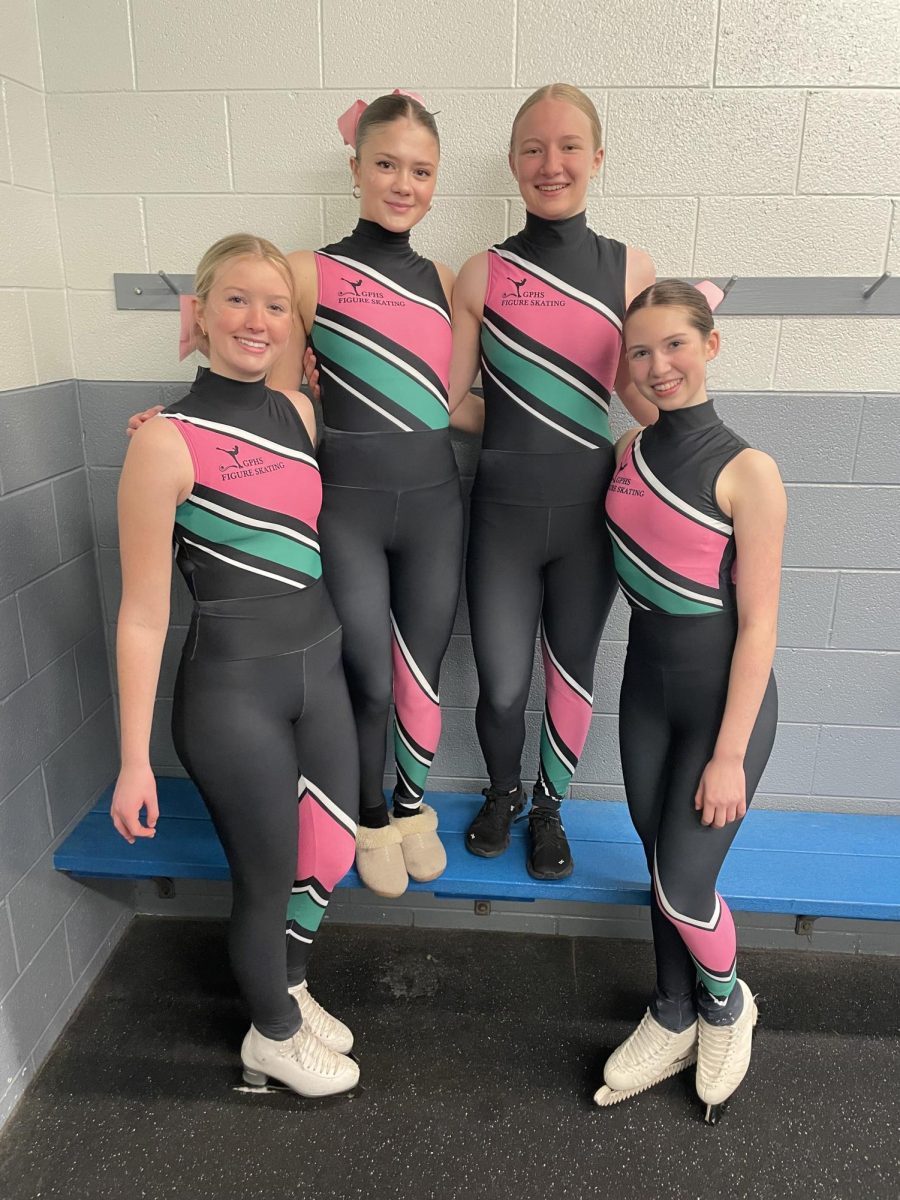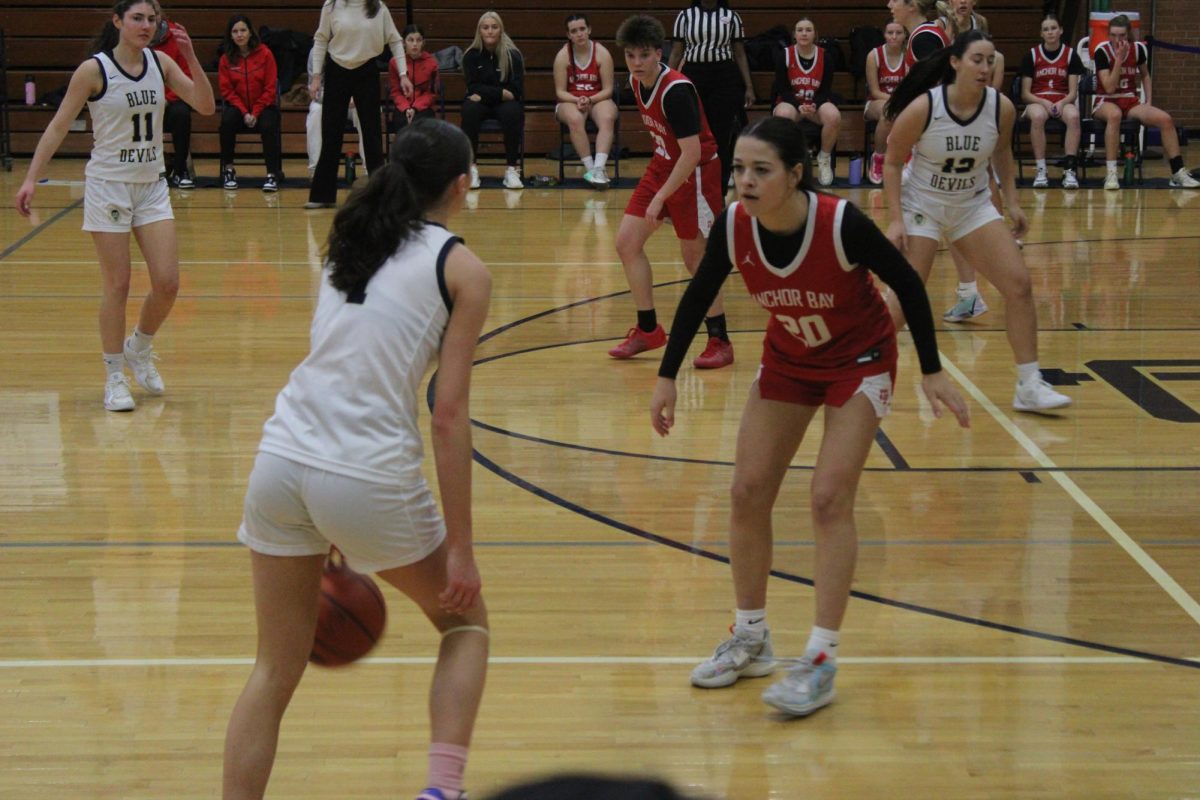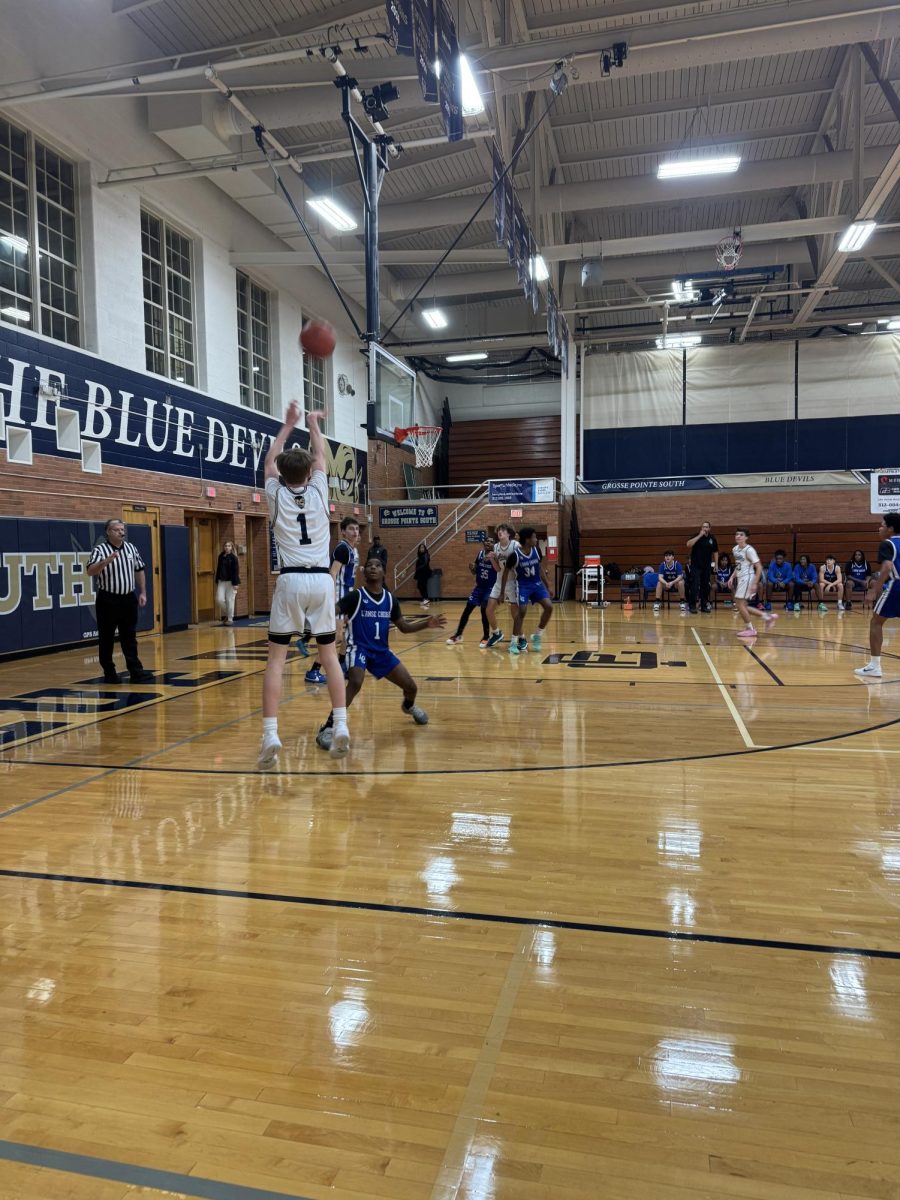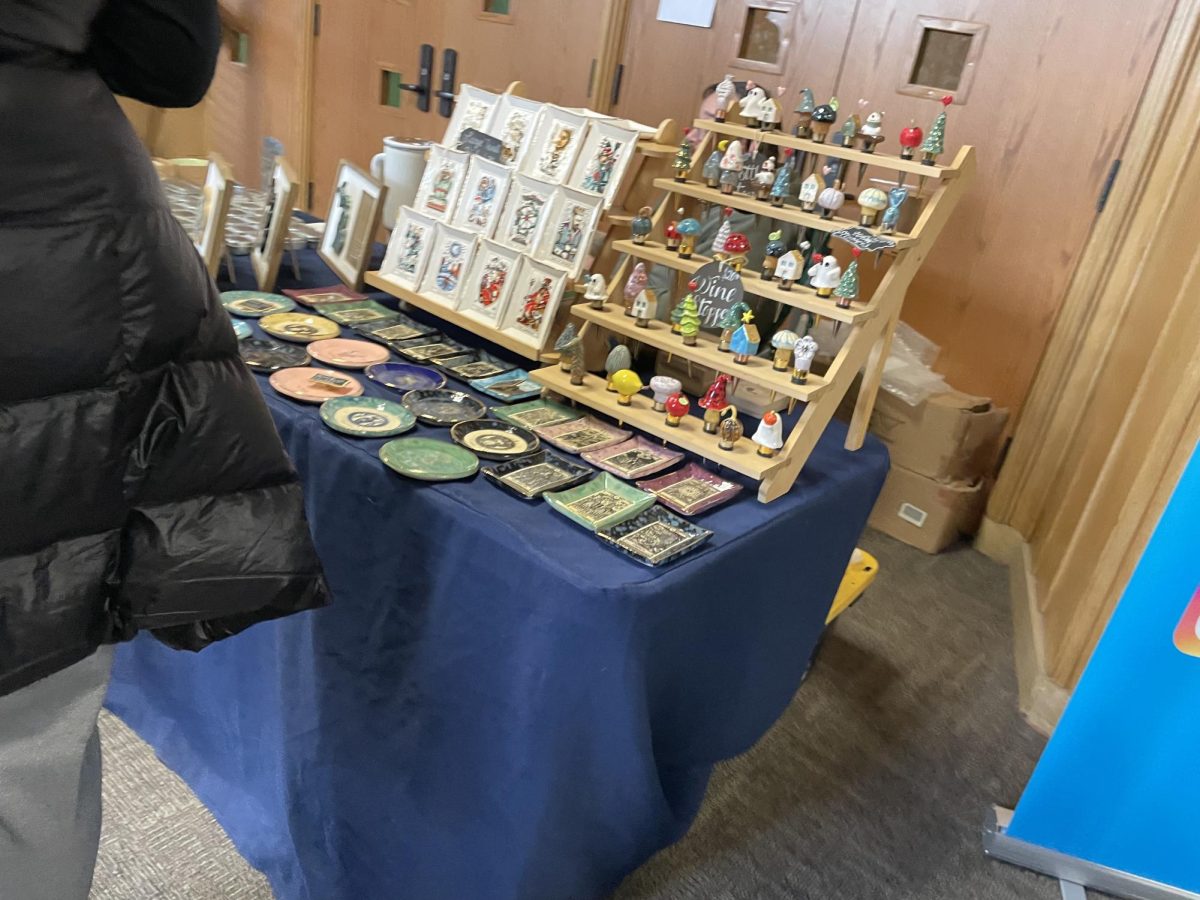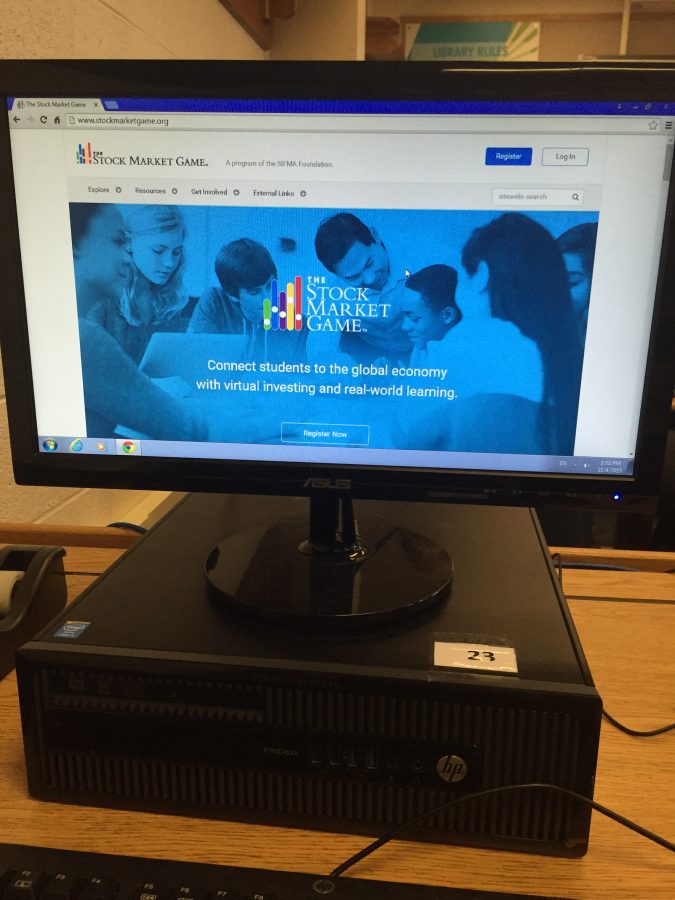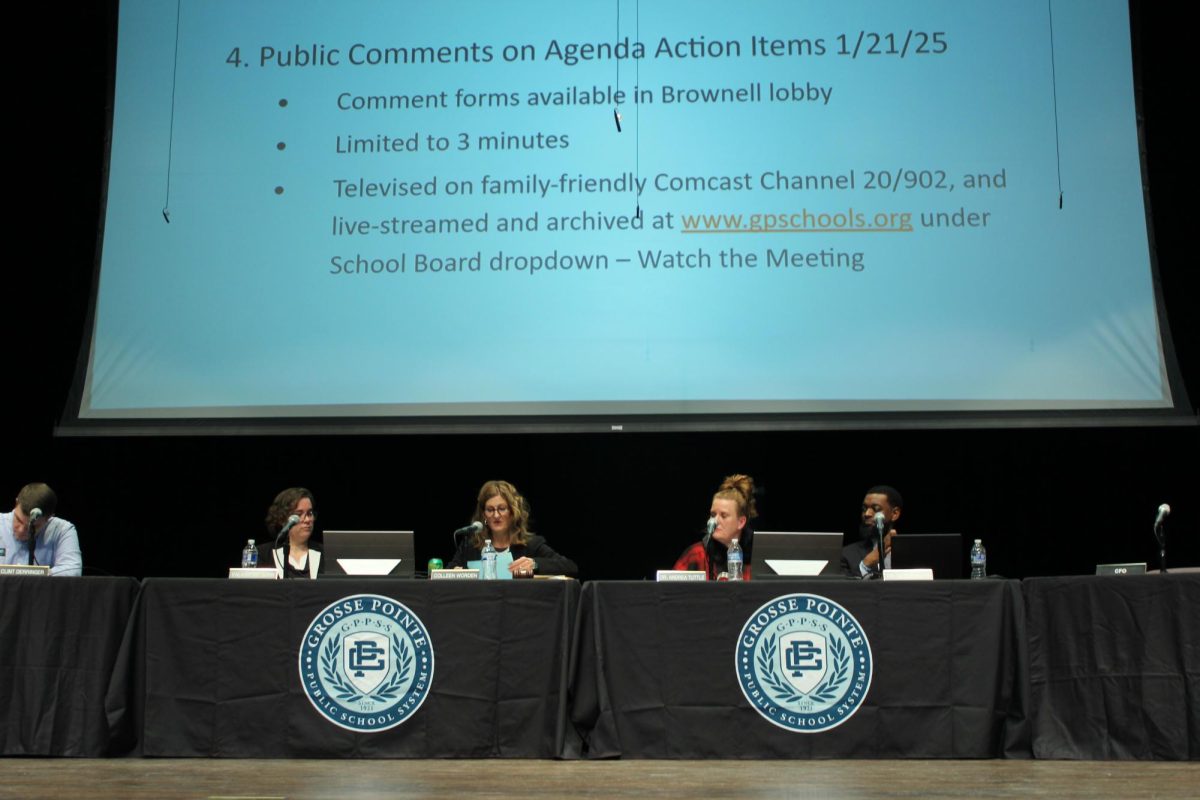By Cam Francis ’17 | Staff Writer
Funded by a grant through the state of Michigan, Economics classes are participating in a stock market simulation called The Stock Market Game, Economics teacher Sandi Siemaszko said.
The simulation has been a part of the curriculum for five out of the seven years that the course has existed in Michigan, Siemaszko said, adding the activity’s popularity is a result of its legitimacy and practical nature.
“The game itself has them (the students) trading stocks in real time,” Siemaszko said. “They’re buying and selling them (the stocks) at the price that they’re at that time of the day.”
The students start off by taking a look at some statistical information and reports on public corporations.
“I have them research stocks in different sectors, which are different categories of stocks,” Siemaszko said.
“Then they get into a group where they share their findings and put together an initial investment portfolio.”
The students are then able to experience the market as they keep a close eye on their picks.
“It’s very realistic in that they’re seeing the ups and downs of the stock market as they’re playing the game,” Siemaszko said.
Students said they appreciate the simulation and find it an impactful way of learning, perhaps more than other methods.
“At first I was a little bit skeptical,” Rachel Brooks ’16 said. “Now that we’ve started it and I’ve learned the ropes a little bit, I think it’s actually really cool. It’s a new interactive way of learning.”
Jacob Yezback ’17 agrees.
“It’s nothing like the other assignments,” Yezback said. “The fact that it’s perfectly aligned with the actual stock market is very unique. I feel like a real investor.”
Siemaszko said the new perspective will present her students with the insight they need to understand the process.
“The number one thing that I hope it does is it gives them an overview of how the stock market works,” Siemaszko said.
According to Brooks, it seems to be working.
“I knew nothing about the stock market at all,” Brooks said. “Zero idea.”
Yezback said he was already familiar with the stock market prior to starting the activity, but it has still served as a learning experience for him.
However, the experience is slightly flawed due to time, Siemaszko said.
“We talked about how stocks are long-term investments, so unfortunately with this game they won’t see that,” Siemaszko said. “But they will see some of the elements of the stock market, how it operates and how it fluctuates.”
The students will check on their investments once a week until mid December when the activity ends, Siemaszko said.
“They can sell some and then they can buy some more,” Siemaszko said.

